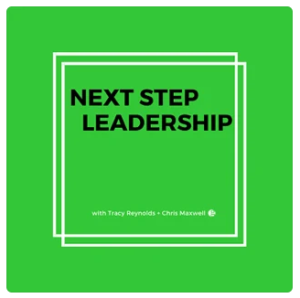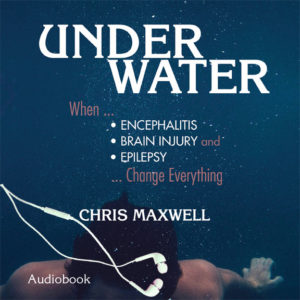Edges. That is what life is, mostly. Edges. Think about that today. Your life. You life as mostly edges.
Calvin Miller wrote a book about his life; titled Life is Mostly Edges: A Memoir. And I wrote about him and that book—and many of his other books, in chapter six of Things We’ve Handed Down.
Here are some of my thoughts. Read them, please. Read about Calvin Miller, please. And, please, think about your life and its edges:
We looked forward to Calvin Miller’s visit. Plans had been made one year before. He would come to north Georgia and spend time with us at Emmanuel University. He would preach and teach and let us ask him questions. We would learn from his spiritual journey, his years of ministry, his writing, his artwork, his life.
This was happening—one of my favorite writers had become someone regularly communicating with me and now he was coming to speak to our students.
But this happened—one of my favorite writers died.
I had planned to take him to lunch or dinner (or, my preference, both lunch and dinner) at BarH, my beloved barbeque restaurant. I wanted him to see the place I invited readers to see as I highlighted him and other authors in my book Pause. In fact, I planned to give him a copy of the book and thank him again for his endorsement. Calvin was the first to write about that book after I finished it. I was, and I still am, humbled and honored by words written about my words, words written by one of my favorite writers of words.
But one of my favorite writers died.
Thinking about words, I enjoyed and learned from Calvin Miller’s words for many years. I hoped our students could also enjoy and learn. His words spoken in that tone, that humor, those stories, do that. His words written with that flow, that honesty, those poems do that. As we planned for him to stand in the Swails Center and Taylor Auditorium, we knew his words would dare us to ask and think and believe. We knew he would be honest as he handed words down to us. We knew he would tell us about life being mostly edges, about disarming the darkness, about the unfinished soul, about the Singer and the song.
I wanted our students to be influenced by Calvin Miller as I have been, as I still am. Through my years of pastoring and writing and living, his words inspired me and challenged me. His words I heard through sermons; his words I read through books and articles and stories and poems.
But one of my favorite writers died.
Each of his books invited me to a unique world. The Singer Trilogy—The Singer, The Song, The Finale—was my first experience with the wonder of his stories. His poetic guidance allowed me fresh visits with the Gospel, Acts, and Revelation. I engaged in new dimensions of life through so many of the lines and paragraphs I found in Miller’s books: The Celtic Path of Prayer, Into the Depths of God, The Philippian Fragment, Loving God Up Close, Preaching: The Art of Narrative Exposition, Letters to a Young Pastor, An Owner’s Manual for the Unfinished Soul.
But, in ways very profound and unexplainable, his memoir met me in unexpected ways: Life is Mostly Edges: A Memoir. He handed things down to me. The biography, if I can call it that, helped me identify some of my edges, some of my many edges. I relived my years of pastoring; I became aware again of my disability; I thought more about my own future.
I guess Calvin Miller was right. Life was, and is, mostly edges.
And speaking of that future, as I write this letter in this collection of letters for another book of my own, I’m now rereading and quoting words from many of his books. Calvin Miller’s collections of words revealed words and wounds and wishes I had collected. Stored. Hidden. Boxed. Opening his books again helped open me again. I found that life is, as he said, mostly edges.










When I think about life being mostly edges, I think of the phrase “Rough around the edges”. I think your story beautifully encompasses the meaning of life is mostly edges. Life isn’t easy, but we have God and the people he puts in our life to smooth out those edges.
This blog truly shows, in my opinion, how we should never take things, or people, for granted. I am sure that you were deeply shaken by the news of his death. Even now, I am pondering and trying to guess what he would have spoken to us students. I am sure you have more of an appreciation for his writing than previously. Like you said about Miller, after I pass, I want people to say that I have left an impact on them by drawing them closer to Christ and the Gospel. I do not care if people remember my name, but I want people to say that my life made a positive impact on their own relationship with Christ.
It’s personal, reflective, and written with deep respect for Calvin Miller. The way they describe Miller’s influence on their life and work makes the message powerful—it’s not just about a writer they admired, but about how his words shaped their own journey. The theme of “edges” is a great way to make us think about the big moments in life, both the exciting ones and the difficult ones.
Calvin Miller’s reflection on life as mostly edges resonates because studying abroad is full of these defining moments—adjusting to a new country, balancing academics and faith, and navigating personal growth. His words remind us that these edges, though sometimes sharp and challenging, also shape our faith and purpose. Maybe, like Miller’s books opened him up again, your experiences as a student in a new place are opening you in ways you never expected.
God truly uses other believers to comfort us, to encourage us, and touch our lives. People can make such an impact on our lives and can assist us in growth. As I read this post, I reflected on my own actions. Am I treating people with the love of Christ? Am I guiding others closer to the gospel and the Kingdom of God?
I think there are so many different way to think about the “edges” presented within this blog post. You repeating the statement, “But one of my favorite writers died”, is an exmple of one of the edges that put a wall beteen you and the thinking surrounding the works of this author. Everytime you thought about this writing or expressed yourself and what this writing meant to you, you came back to the hurtful idea that you will never get to be within his presence again. Not only this but you will never get to see his new thoughts or his potential new writings. Yes, this edge reminded you of his passing and those negative things which come with it, but his passing put the ideas behind his beautiful work to the forefront of your mind. Outside of this idea, the edge of his passing means he forever gets to exist within the most beautfiful place, so you can only imagine what his works will look like when we get to join him in that tranquility.
One of the things I want people to say at my funeral is exactly what you have said, “he led me to Christ” that is what I want my intention to be in everything I do, lead others to Christ.
I agree with you that life is full of complications or ‘edges’, things don’t always go to plan, in fact they rarely do, and that’s okay. In your case a very sad edge occurred, my condolences go to you and Calvin Miller’s family, truly tragic.
Life is unpredictable. The repeated phrase “But one of my favorite writers died” creates an emotional weight, it captures the suddenness of loss and how we often plan for the future without knowing if it will unfold as we hope. Despite this, I believe that there is power in words; power that can lead individuals for many generations. We pass down wisdom, stories, and experiences from generation to generation, a key part of human connection- a connection that is powered by and through God Himself. We live on the edge of past and future, certainty and uncertainty, faith and doubt. This blog connects Miller’s metaphor to personal experiences, which speaks to the universal nature of edges in everyone’s journey.
i believe this article shows how quickly any circumstances can change, and how good can come from those changes. In this example, we are able to look back on Mr. Miller, and show and tell his stories that are so powerful.
Thank you for sharing this heartfelt tribute. I think that your reflection of his impact was extremely powerful especially the idea that life is mostly edges. This reminds me to reflect on my own edges and just to appreciate the wisdom that is left behind by those around us.